Your cart is currently empty!
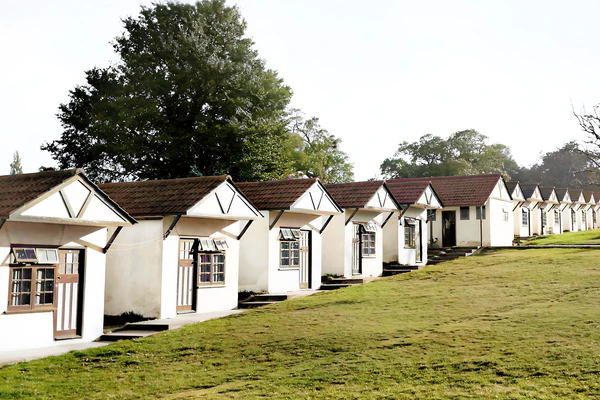
Warner’s Puckpool & St Clare Holiday Camps
Captain Harry Warner moved to Hayling Island in 1928 and established the successful Grotto Cafe which was located on the seafront just east of the Grand Hotel. In 1931 he opened Northney holiday camp in the north end of the island.
Billy Butlin had become interested in the holiday camp business and paid a visit to the island where he struck up a friendship with Warner. The two decided to go into business together and built three camps under a 50/50 partnership – Seaton (1934), Dovercourt (1937) and Puckpool (1939). In addition, Butlin also opened his own camps at Skegness (1936) and Clacton (1938).
The Warners company went public in 1939 with Butlin acting as Chairman. After the war Butlin decided to step away so he could focus more on his own growing empire. Over the years Butlins sold off most of their Warner shares but retained a 10% stake right up until the company was sold in 1981.
Puckpool Holiday Camp
Puckpool House on the Isle of Wight dated from the early-1700s and consisted of a large manor house with 16-acres of grounds sloping down towards the sea. After being acquired by Warner and Butlin, and following an investment of £60,000, Warner’s Puckpool Holiday Camp opened on 7th July 1939. The ground floor of the house became the ‘Blue Lady’ café along with the ‘Tudor Rose’ bar while the 10 bedrooms upstairs were used for staff accommodation (women only)
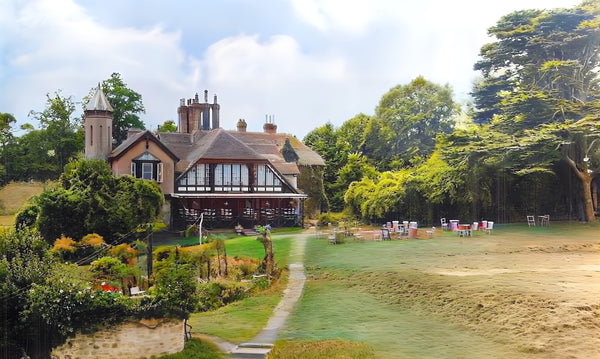
The chalets were constructed from brick and consisted of nothing more than a bedroom and a sink. Communal bath/toilet blocks were dotted around the site Meals were served in a large dining room housed within a 32,000-square-foot entertainment building, which also featured a dance hall, concert hall, and billiard room. A 100 ft by 50 ft outdoor swimming pool was built. The camp had the capacity to accommodate 500 guests and was staffed by a team of 120.
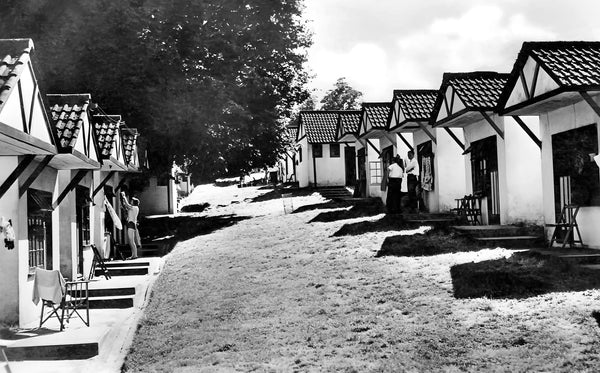

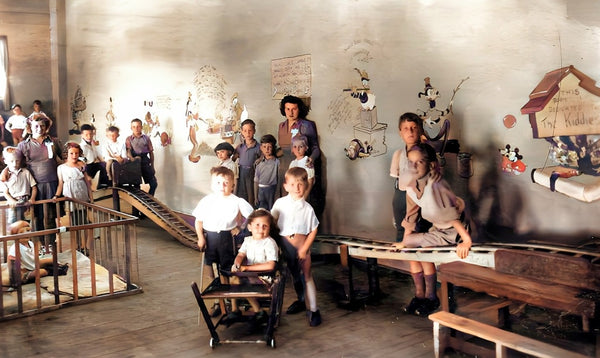
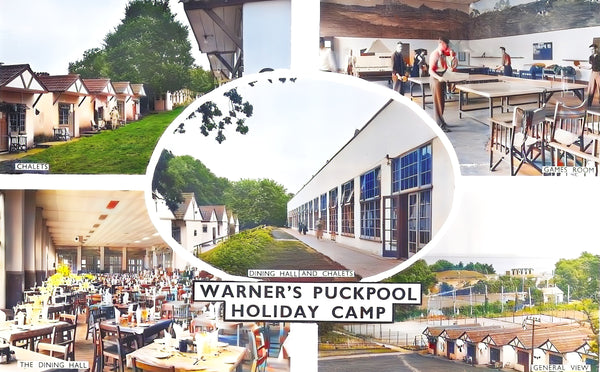
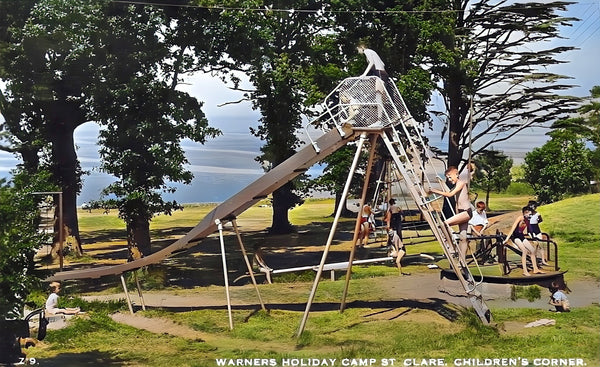
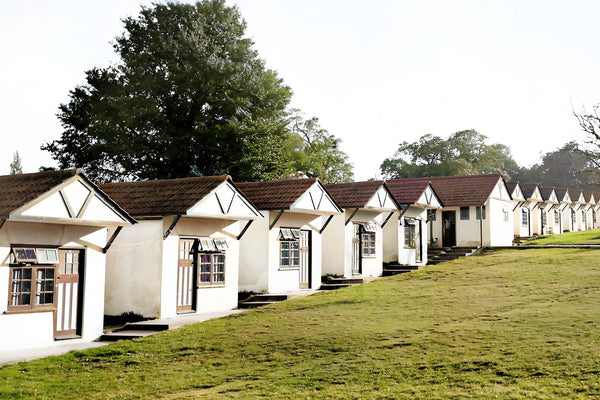
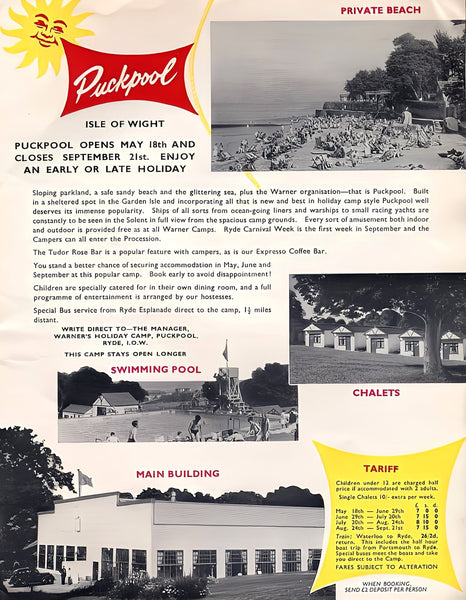
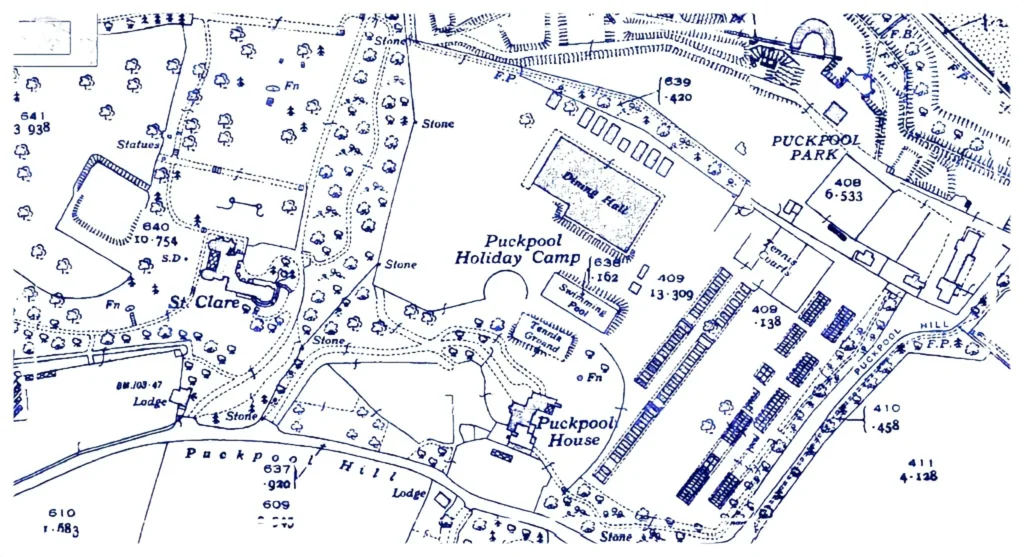
It was requisitioned during the war and became known as HMS Medina. It reopened again in 1946. In 1950 you could even fly to the camp!
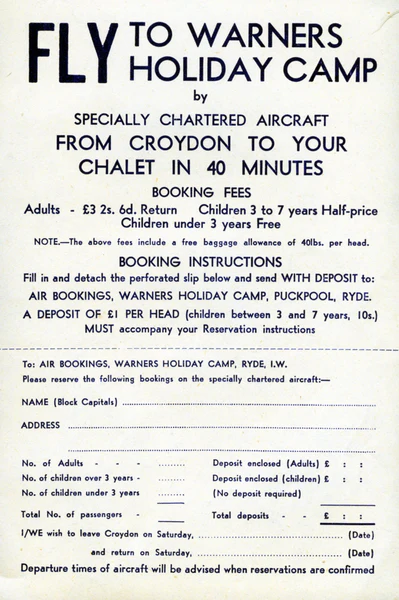
St Clare Holiday Camp
Around 1950 Warners took out a lease on the adjoining grounds of St Clare Castle. It wasn’t a real castle but a 40-room manor house built to look like one in 1793. Queen Victoria and Prince Albert had been past visitors. The property was owned by Major Vernon Harcourt who had moved out and was now living elsewhere.
Instead of expanding Puckpool, Warner’s chose to establish an entirely separate camp with a new identity. This new camp, named St Clare, aligned with their “small and friendly” business model, favoring two smaller camps over one large one. The St Clare camp opened to the public in 1952 although the castle was not used and sat mostly empty.
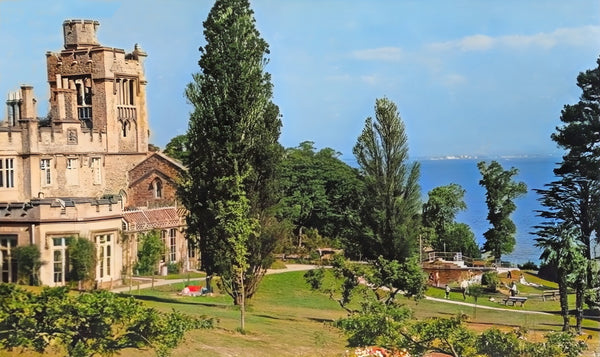
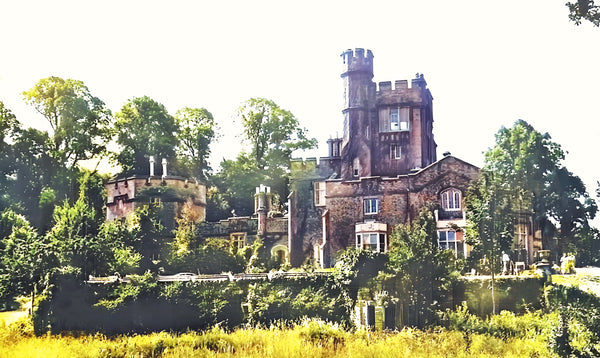

In 1954 a large wing of the castle was destroyed by fire with fireman pumping water out of the camp swimming pool and managing to save about half of it. The derelict ruins remained standing until being demolished in 1960.

Both camps had great views looking out across the Solent and sailing schedules were posted showing when some of the big ocean liners would be passing by including the Queen Elizabeth and Queen Mary.

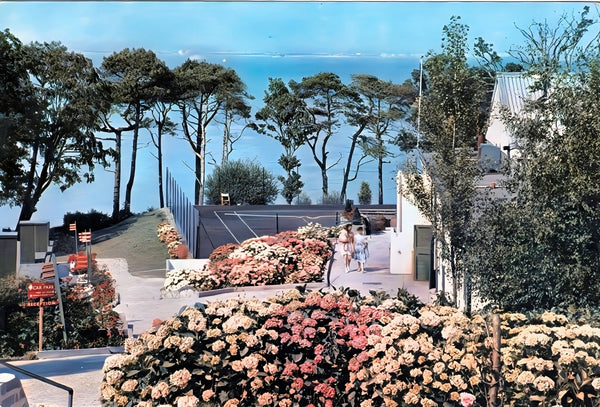
Some of the old 1930s chalets were later retrofitted with bathrooms and second bedrooms. In 1972 Puckpool was featured in the cult movie ‘That’ll Be The Day’ starring Ringo Starr and David Essex.
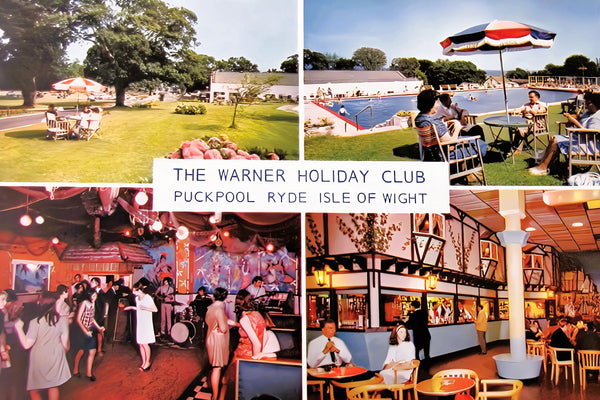
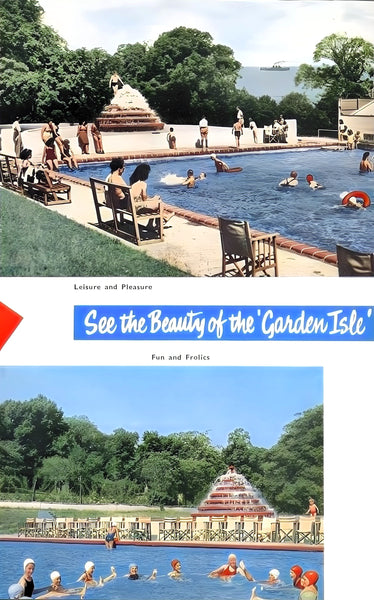
During the 1980s some of older chalets at Puckpool were replaced by modern two-story Ambassador apartments. In 1989 a new £2 million indoor swimming pool complex was built at St Clare. By this time, guests could freely move between the two camps. Both retained their full board status with most chalets still being ‘motel-style’ with no kitchens or dining rooms. A few static caravans were later installed for those wanting self-catering.
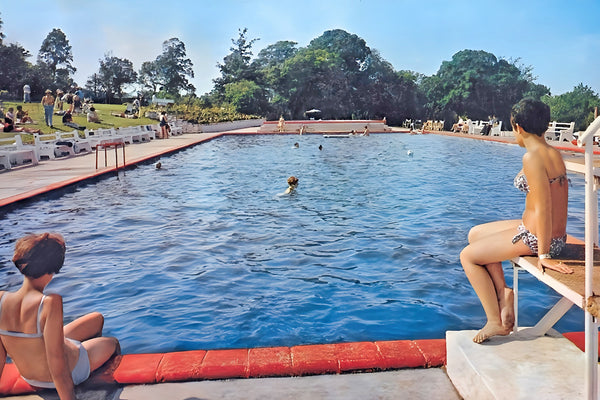

In 1990 Warner’s parent company was acquired by Rank (owners of Butlin’s and Haven) so the two camps were rebranded under the Haven name. In 1992 they were merged together and renamed Harcourt Sands.
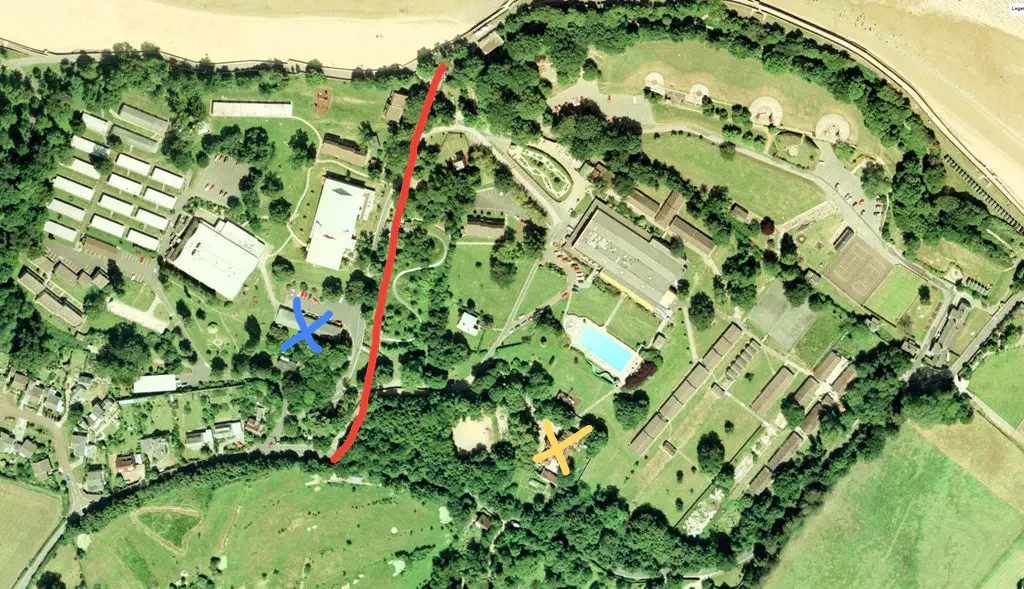
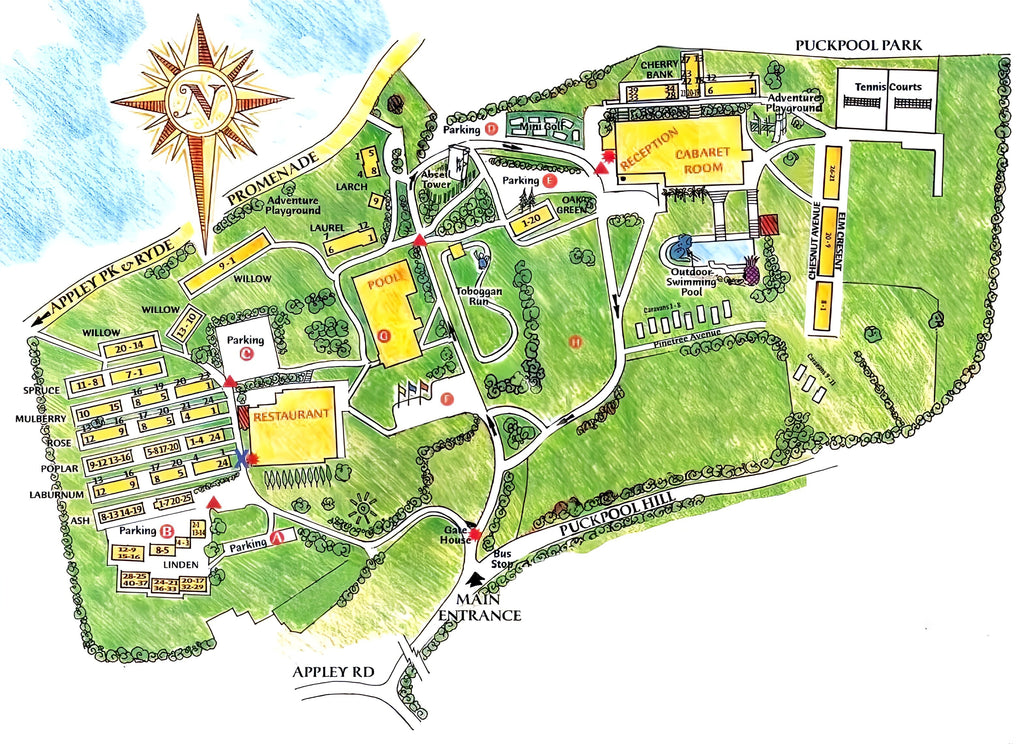

In 1999, Rank sold the camp, along with Lyme Bay and Mill Rythe, to Renowned Holidays of New Barnet, aiming to shift their focus from full-board to self-catering sites. Under Renowned’s management, the camp continued to operate but struggled financially, reportedly losing £500,000 in 2006 despite a turnover of £3 million. It closed at the end of that year.
Puckpool House, which had become quite dilapidated, was subsequently sold and restored, and is now a Grade I listed private residence. Meanwhile, the rest of the camp was left abandoned and neglected.
In 2016 outline planning permission was granted to build 128 houses and a 63-bed hotel. Demolition began, but the original developers pulled out and work stopped. New developers have taken over and at the time of writing the final plans are still being discussed.
We’d love to hear your stories and memories of the camp. Please feel free to share your comments below.
Leave a Reply